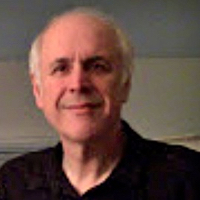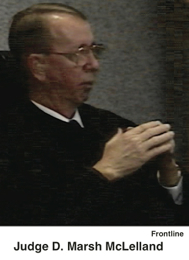Rascals case in brief
In the beginning, in 1989, more than 90 children at the Little Rascals Day Care Center in Edenton, North Carolina, accused a total of 20 adults with 429 instances of sexual abuse over a three-year period. It may have all begun with one parent’s complaint about punishment given her child.
Among the alleged perpetrators: the sheriff and mayor. But prosecutors would charge only Robin Byrum, Darlene Harris, Elizabeth “Betsy” Kelly, Robert “Bob” Kelly, Willard Scott Privott, Shelley Stone and Dawn Wilson – the Edenton 7.
Along with sodomy and beatings, allegations included a baby killed with a handgun, a child being hung upside down from a tree and being set on fire and countless other fantastic incidents involving spaceships, hot air balloons, pirate ships and trained sharks.
By the time prosecutors dropped the last charges in 1997, Little Rascals had become North Carolina’s longest and most costly criminal trial. Prosecutors kept defendants jailed in hopes at least one would turn against their supposed co-conspirators. Remarkably, none did. Another shameful record: Five defendants had to wait longer to face their accusers in court than anyone else in North Carolina history.
Between 1991 and 1997, Ofra Bikel produced three extraordinary episodes on the Little Rascals case for the PBS series “Frontline.” Although “Innocence Lost” did not deter prosecutors, it exposed their tactics and fostered nationwide skepticism and dismay.
With each passing year, the absurdity of the Little Rascals charges has become more obvious. But no admission of error has ever come from prosecutors, police, interviewers or parents. This site is devoted to the issues raised by this case.
On Facebook
Click for earlier Facebook posts archived on this site
Click to go to
Today’s random selection from the Little Rascals Day Care archives….
Click for earlier Facebook posts archived on this site
Click to go to
Today’s random selection from the Little Rascals Day Care archives….
APSAC’s child-protection record doesn’t inspire confidence

youtube.com
Richard Wexler
Sept. 28, 2016
“The American Professional Society on the Abuse of Children [is] presenting a ‘special issue’ of one of its publications devoted to [Differential response] – or rather, devoted to bashing DR….
“APSAC’s track record for getting child welfare issues right is less than distinguished. As Debbie Nathan and Michael Snedeker explain in Satan’s Silence, APSAC was formed in the 1980s largely by well-meaning ‘professionals’ who promoted claims of a supposed epidemic of mass molestation and satanic ritual abuse in day care centers.
“ ‘From its inception,’ Nathan and Snedeker write, ‘APSAC’s leadership roster was a veritable directory of ritual-abuse architects.’ Kee MacFarlane, who led the questioning of children in the notorious McMartin Preschool case, served on APSAC’s board – and received the group’s Outstanding Professional award – a decade after McMartin. And in 1997, three years after writing an article promoting the idea that there really were secret tunnels under the McMartin Preschool, Roland Summit, another former board member, received the group’s Lifetime Achievement award.”
– From “Opposition to Differential Response Dealt Heavy Blow” by Richard Wexler in the Chronicle of Social Change (Sept. 24)
Differential response – a less adversarial, more collaborative approach to reports of child abuse and neglect – isn’t a subject I’m well-informed on. But Wexler’s characterization of APSAC’s culpability for the day-care panic can’t be disputed.
Next: Has APSAC recanted about ‘satanic ritual abuse’?
![]()
Convictions overturned, judge angrily exited
 July 5, 2014
July 5, 2014
“The Burlington judge who has presided over the the Little Rascals Day Care Center case since 1990 resigned in disgust the day after the state Supreme Court refused to review (the overturning of) two convictions.
“D. Marsh McLelland, a retired Superior Court judge, said in a letter dated Sept. 8 that the court’s refusal to review the cases ‘is legally and morally reprehensible.’
“McLelland’s letter to Chief Justice Burley Mitchell said the refusal to review a Court of Appeals order for a new trial raised the term technicality to new heights….”
– From “Judge quits Little Rascals case” from the Associated Press (Sept. 22, 1995)
I imagine that the “technicality” comment was from a direct quote, although I haven’t been able to find either McLelland’s original letter or a more substantial account. It’s no wonder he felt humiliated – the Court of Appeals decision had laid bare his indifference to the rights of the defendants.
Regardless, McLelland’s resignation proved irrelevant, as prosecutors decided not to retry Bob Kelly and Dawn Wilson.
Children ‘got mixed up’? Believe them anyway
June 18, 2012
“Yes, prosecutors blundered terribly by piling on charges and piling on defendants, just because they could.
“Yes, some of the parents became hysterical and acted out of guilt. That’s the way people act when told their children have been sexually abused – by someone to whom they entrusted them, to whom they personally delivered them every day.
“And here’s another thing the experts are right about. The children weren’t perfect witnesses. They got mixed up. They talked about spaceships and houses that walked.
“But that’s what it means to be a child, and what makes children prey to pedophiles. Children don’t know how to defend themselves. They’re easy to scare and apt to do what adults tell them to do.
“There is plenty to learn from the tragic mistakes in the Little Rascals case. But the final tragedy would be to conclude that child sex abuse is some sort of figment of our social imagination, and not the very real predator it is.”
– From a column by Lorraine Ahearn in the Greensboro News & Record (June 1, 1997)
As previously mentioned, journalists were among those who just couldn’t believe nothing happened at Little Rascals.
Ms. Ahearn, who covered part of Bob Kelly’s trial before becoming a columnist, has changed her line of work since 1997 – has she also changed her mind about ritual sex abuse at day cares? Apparently not:
“I am no longer a working journalist, and I am not interested in weighing in.
“You may glean whatever you wish from the (column). I did cover the trial as a reporter and that was what my column was based upon, not second-hand views about unrelated cases.”
I’d be the last to disparage shoe-leather reporting, but it’s those “second-hand views about unrelated cases” – from journalists such as Debbie Nathan and social scientists such as Stephen Ceci and Maggie Bruck – that enable us to comprehend the incomprehensible.
● ● ●
Do I ever tire of asking the Lorraine Ahearns, the David Finkelhors, the Kathleen Coulborn Fallers, the H.W. Williamses, the Elisabeth Porter-Hurds and the Michele L. Zimmermans, “Have you changed your mind?”
Well, yes, I do. But do they ever tire of insisting they haven’t?
Why we want to forget the day-care abuse craziness
 July 6, 2012
July 6, 2012
“When you once believed something that now strikes you as absurd, even unhinged, it can be almost impossible to summon that feeling of credulity again.
“Maybe that is why it is easier for most of us to forget, rather than to try and explain, the Satanic-abuse scare that gripped this country in the early ‘80s – the myth that Devil-worshipers had set up shop in our day-care centers, where their clever adepts were raping and sodomizing children, practicing ritual sacrifice, shedding their clothes, drinking blood and eating feces, all unnoticed by parents, neighbors and the authorities.”
– Margaret Talbot, writing in The New York Times Magazine, Jan. 7, 2001











0 CommentsComment on Facebook